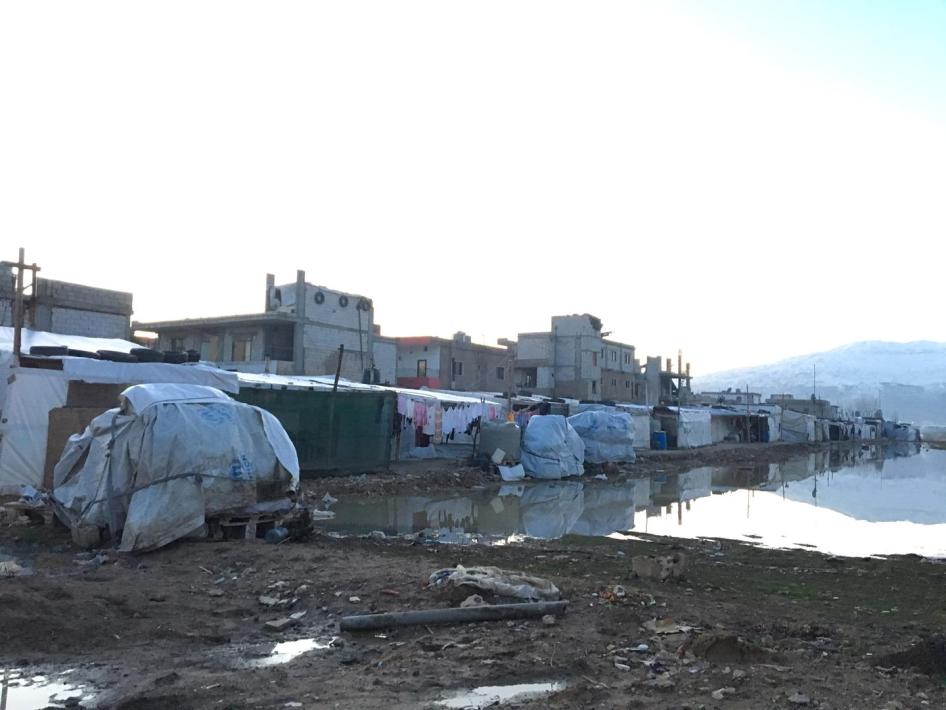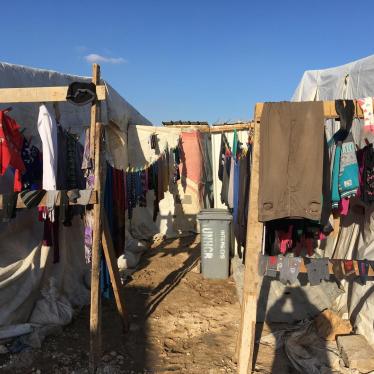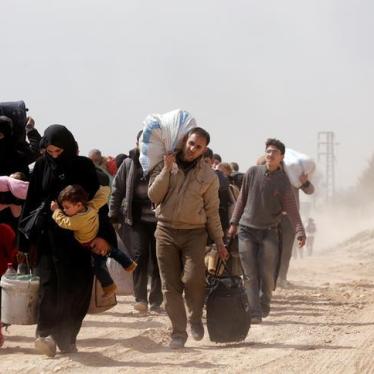Some politicians in Lebanon, host to the world’s largest per capita refugee population, are looking for signs that it may be safe for Syrian refugees to go home, even as the violence there continues.
Seven years into the Syria conflict, insufficient international support to help Lebanon cope with the refugee influx has contributed to these calls.
The Friends of Syria Group meeting in Brussels on 24 and 25 April should ensure that Syria's neighbours are getting enough international support to accommodate Syrian refugees without unduly burdening local governments. At the same time, donors should leverage support to urge greater respect for Syrian refugees’ rights.
Unilateral evictions
In Lebanon, certain municipalities have been unilaterally evicting Syrians from their homes and expelling them from their towns. According to the UN refugee agency, at least 3,664 Syrian refugees have been evicted in 13 municipalities from 2016 through the first quarter of 2018, and another 42,000 are at risk of eviction.
The Friends of Syria meeting should regard these forced evictions as a warning that the willingness of host communities to tolerate the continued refugee presence has its limits. Last year, the UN’s humanitarian appeal for more than $2bn for Syrian refugees in Lebanon and other countries in the region was only 54 percent funded.
The Brussels meeting should increase support and make clear that sharing responsibility is intrinsic to protecting refugee rights.
Lebanon is taking some positive actions, including allowing some older Syrian children to obtain temporary legal status more easily, increasing their ability to enrol in school. But at the same time, the unlawful evictions are increasing refugees' fears.
"Mahmoud", 56, who had been living since 2012 in Zahle, one of the affected municipalities, told me that municipal police kicked and banged on his family's door last August, demanding to see their papers. As police forced Mahmoud to sign an eviction notice, one officer told him to leave the neighbourhood and go back to Syria. "I replied to her that I wished I could go back, but that I couldn't," he said.
'Leave or we will put your stuff on the street'
There is no legal basis for these evictions or expulsions; Syrians have been given no reasonable notice or right to appeal. "There was no court, no judge, no legal procedure," said "Hafez", a 57-year-old long-time legal resident. "They just said, 'You have to leave or we will put your stuff on the street.'"
The mass evictions, which occurred with increasing frequency in the last quarter of 2017, have caused refugees to lose income and property, and have disrupted their children’s education. In some cases, Syrians said authorities used violence to evict them.
The evictions show no sign of a coherent national plan, but rather an ad hoc response in some municipalities, most predominantly Christian. All of the Syrian refugee evictees I interviewed identified as Muslim and attributed their evictions in part to their religious identity, although humanitarian agencies have also documented the eviction of Syrian Christians.
"This is a Christian town," said a municipal official in Bcharre, in northern Lebanon. "There is no mosque here. We do not want to bring in refugees. There are no Christian refugees among the Syrians. We just don’t like people from outside."
Legal and humanitarian obligations
Relevant ministries of the Lebanese government, including the Ministry of Interior and Municipalities, should intervene to prevent municipal-level mistreatment of Syrian refugees and to ensure that they are not left homeless and destitute as a result of unlawful actions. But seeing that refugees are properly treated and cared for is also an international responsibility.
The countries gathered at the Friends of Syria meeting in Brussels should increase support to Lebanon to enable it to meet its legal and humanitarian obligations towards the refugees. For their part, Lebanese leaders should curb rhetoric that encourages or condones forced evictions, expulsions, and other discriminatory and harassing treatment of refugees in Lebanon.









